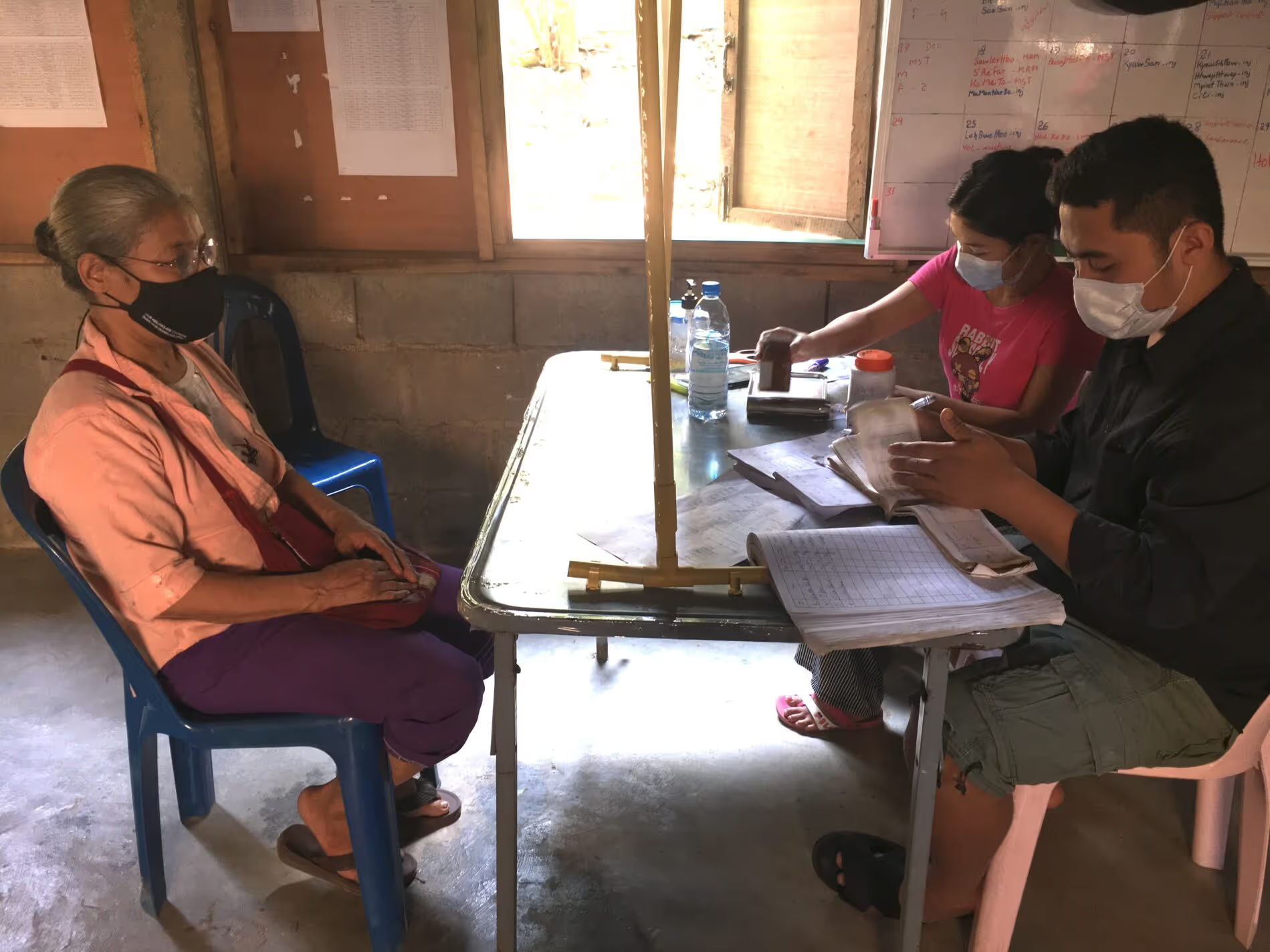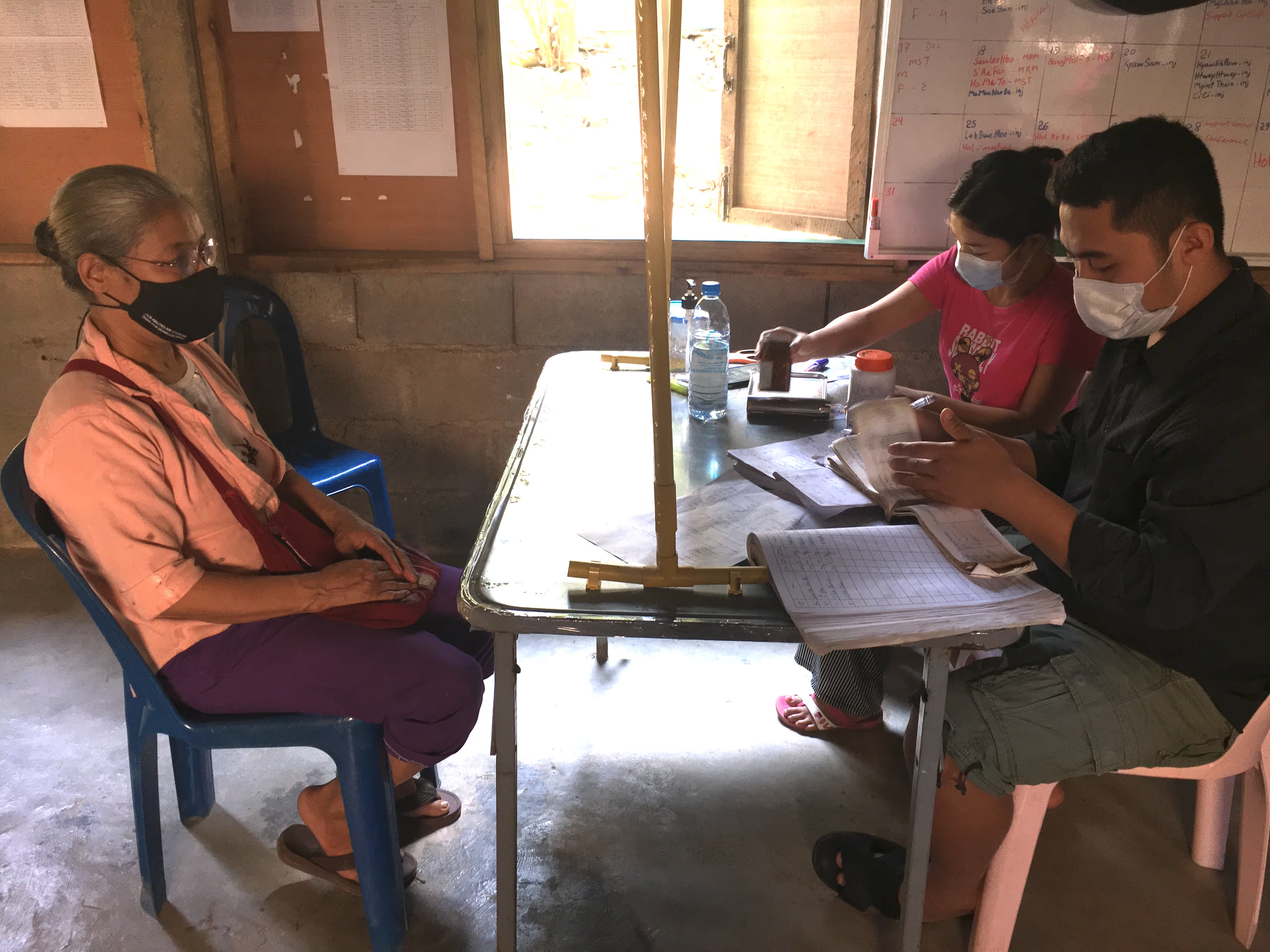Integrating an evidence-based mental health intervention into non-communicable disease care

Project overview
This research aimed to examine the integration of an evidenced-based mental health intervention into existing non-communicable disease (NCD) care models, implemented by the International Rescue Committee (IRC) in Thailand refugee camps to compare health outcomes, factors influencing treatment compliance and costs, between intervention and control groups.
Countries
Thailand
Organisations
International Rescue Committee
Partners
Johns Hopkins University, Khon Kaen University
Area of funding
Humanitarian Research
Grant amount
£647,431
Start date
01
December
2020
End date
31
March
2025
Project length (in months)
51
Funding calls
Topics
No items found.
Status
Closed
Project solution
This project offers [specific solution or intervention] to tackle [challenge]. By implementing [strategies, tools, or innovations], the project aims to achieve [desired outcomes]. The approach is designed to [specific actions or methods] to bring about meaningful change in [community, region, or issue area].
Expected outcomes
This project aims to achieve [specific outcomes], such as [measurable results, improvements, or changes]. The expected impact includes [benefits to the target community, advancements in research or innovation, or long-term effects]. By the end of the project, we anticipate [specific changes or milestones] that will contribute to [broader goals or objectives].
Principal Investigators: Dr. Wongsa Laohasiriwong, Khon Kaen University and Dr Judy Bass, Johns Hopkins University.
Research Snapshot: Can a mental health intervention help people in humanitarian settings manage chronic diseases?
This mixed methods community-engaged study in two refugee camps in Kenya and Uganda found refugees and displaced people may use unsafe methods to end their pregMental health symptomsexperienced alongside chronic non-communicable diseases (NCDs) like diabetesand hypertension can make it difficult for patients to adhere to prescribedmedication and lifestyle changes. This research found that an evidence-basedmental health intervention – the Common Elements Treatment Approach (CETA) -could positively impact chronic disease management.
[.cta_link]Read the Snapshot[.cta_link]
What did the study set out to achieve?
Non-communicable diseases (NCDs) are the leading cause of mortality worldwide. There is an increasing burden of NCDs within humanitarian contexts, but a lack of evidence of effective NCD interventions in humanitarian settings outside the Middle East. Mental disorders and major NCDs often share risk factors such as sedentary life style and alcohol misuse, and can coexist, leading to high care costs care and premature mortality. Mental health conditions significantly impact NCD risk factors and treatment compliance. This study integrates the evidence-based intervention Common Elements Treatment Approach (CETA) , into existing care models for people with hypertension, diabetes and epilepsy. Its objectives are to assess factors influencing treatment compliance, determine improvement in health outcomes, and evaluate potential cost savings.
This study aimed to (1) assess the impact of the intervention on mental health outcomes including wellbeing, mental and physical health status, (2) assess the differences between intervention and control group behavioral risk factors. The research aimed to inform the role of mental health care as part of comprehensive NCD care in humanitarian settings.
What were the key findings?
- Medication Adherence: People receiving CETA reported statistically significantly better adherence to their medication compared to the control group; similar trends were found for pill count, but these results were not statistically significant. On average, both groups showed improved medication adherence over the study period.
- Mental Health: Among study participants who had elevated mental health symptoms at baseline (~40% of all study participants), those receiving CETA reported a significantly greater drop in mental health symptoms compared to those who were in the control group
- Physical Health: No significant impacts were found on clinical outcomes (blood pressure, HbA1C and fasting blood sugar levels) and BMI, however small sample sizes for those with each of these outcomes at baseline limits interpretation of these findings.
- Costs: Excluding start-up costs, ongoing implementation for routine chronic disease care cost about US $549 per patient per year. Adding the CETA intervention costs an additional 29% ($157 per patient per year), for a total of $706 per patient per year.
What does this mean for policymakers and practitioners?
The high rate (~40%) of mental health problems among the NCD patients with poor treatment adherence demonstrates the value of planning and integrating mental health care into broader NCD care. Additionally, mental health interventions have the potential to be beneficial even for people without mental health problems. CETA had a significant impact on self-reported medication adherence – a primary outcome - and on mental health symptoms among those with elevated symptoms.
While the results are promising, the costs per patient are not insignificant. There is value in exploring whether alternative, less costly evidence based mental health interventions may have a comparable impact. Targeted interventions for improving medication adherence could be a focus for future innovation.
Key programmatic recommendations:
- Individuals with poor adherence to medication, even in the absence of mental health problems, may benefit from an evidence-based mental health intervention.
- Patients living with chronic diseases experiencing poor medication adherence should be screened for mental health problems and receive evidence-based services if they are identified with mental health conditions.
- Addressing structural factors related to poor medication adherence and increased risks for NCDs, such as poor access to necessary medications, and limited access to healthy foods and space for physical activity.
No items found.
Project delivery & updates
Stay up to date with the latest developments from this project. Here, you will find details on what has been delivered, resources created, and regular updates as the project progresses. Access key documents, reports, and other materials to see how the project is making an impact.
No resources/updates have been published yet for this project. Sign up for our newsletter to stay informed about upcoming publications and updates!
Join our Newsletter
Resources
FACTORS ASSOCIATED WITH UNCONTROLLED FASTING BLOOD SUGAR AMONG DISPLACED TYPE 2 DIABETIC PATIENTS IN THAILAND-MYANMAR BORDER
Research brief
LEARN MOREResearch Snapshot: Can a mental health intervention help people in humanitarian settings manage chronic diseases?
Research snapshot
LEARN MORELatest updates
No items found.



